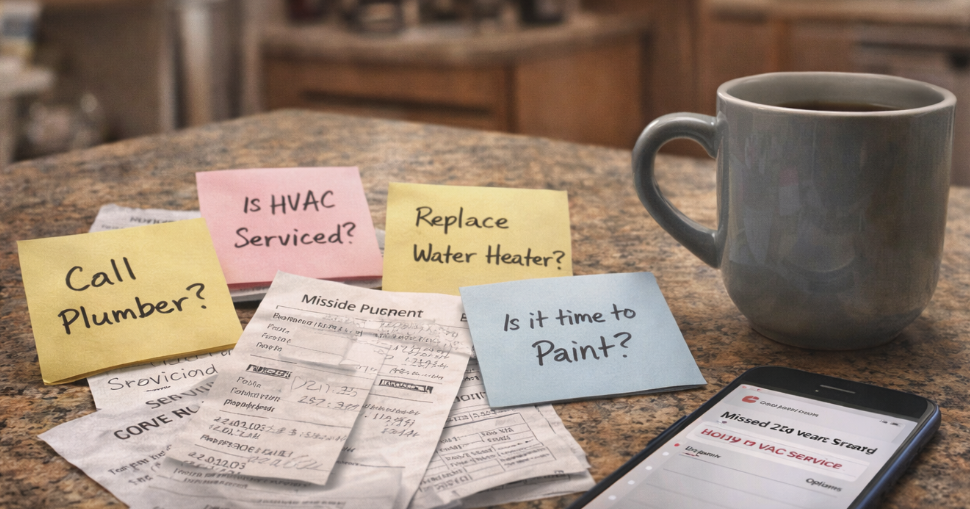Comprehensive Guide for Tennessee Homeowners: Weather, Maintenance, Finance & More
Owning a home in Tennessee comes with unique challenges and responsibilities. From the unpredictable weather extremes to navigating legal regulations, homeowners must be well-prepared. This guide provides essential insights into maintaining your home, protecting it from the elements, and planning financially for the future. Whether you are a first-time buyer or a seasoned property investor, understanding these factors is crucial for successful homeownership in the Volunteer State.
1. Weather Considerations & Preparedness
Tornado Safety
Tennessee is no stranger to tornadoes. Homeowners should have a safety plan in place, including identifying a safe room and knowing post-event actions. Documenting your home and possessions for insurance purposes is also vital.
Flood Risk Management
Understanding FEMA flood maps and Special Flood Hazard Areas (SFHA) is essential for homeowners. Ensure you have adequate insurance coverage and stay informed about local flood statistics.
Winter Weather
Preparing for winter involves insulating pipes, servicing your furnace, and ensuring your chimney is clean. Sealing drafts can also help maintain a comfortable home during colder months.
2. Home Maintenance Essentials
Foundation Issues
Look for signs of foundation problems, such as cracks in walls or uneven floors. Soil movement can cause these issues, so regular inspections are necessary to prevent costly repairs.
HVAC Maintenance
Seasonal HVAC maintenance is crucial. Change filters regularly, check refrigerant levels, and consider service plans to keep your system running efficiently.
Pest Control
Proper firewood storage and landscape trimming can help prevent pest infestations. Be proactive in termite prevention to protect your home.
Plumbing Considerations
Be aware of freeze-thaw cycles that can affect plumbing. Hard water can also cause issues, so consider preventative measures to protect your pipes.
3. Financial Considerations
Property Taxes
Property tax rates can vary significantly across counties in Tennessee. Understanding median costs and assessment ratios can help you budget effectively.
Home Insurance
Know what your home insurance covers and consider additional coverage options. Bundling discounts can also save you money.
Home Warranties
Home warranties can provide peace of mind, but be aware of coverage types and potential red flags when selecting a plan.
Energy Efficiency
Explore programs like Weatherization Assistance and IRA rebates to improve your home's energy efficiency and reduce costs.
4. Landscaping & Outdoor Maintenance
Seasonal Tips
Each season brings different landscaping needs. Plan for spring planting, summer maintenance, fall clean-up, and winter preparation.
Plant Selection for Zone 7a
Choose native and drought-resistant plants to thrive in Tennessee's climate. This not only enhances your landscape but also supports local ecosystems.
Outdoor Aesthetics
Consider visual layering and grouping planters for a more appealing outdoor space. Low-maintenance ideas can save time and effort.
5. Legal & Regulatory Considerations
Renovation Permits
Know what renovations require permits in Tennessee to avoid legal issues. Understanding these regulations is crucial for any homeowner planning improvements.
Warranties & Consumer Protections
Familiarize yourself with implied builder warranties and how to report violations to protect your rights as a homeowner.
Utilities Management
Research local utility providers and average costs. Implementing energy-saving strategies can lead to significant savings.
6. Buying & Selling a Home in Tennessee
First-Time Buyer Programs
Explore programs like THDA and Great Choice Loan to assist with down payments and make homeownership more accessible.
Home Inspection Tips
Preparing your home for inspection can help identify potential issues before selling. Ensure appliances and plumbing are in good condition.
Conclusion
Being a homeowner in Tennessee comes with its benefits and responsibilities. By staying informed and proactive, you can minimize surprises, reduce costs, and enhance the long-term value of your property.
.jpg)





